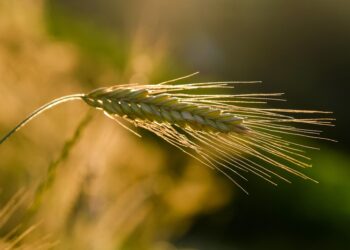Harvesting the Future: Innovative Sustainable Farming Practices for a Greener Tomorrow
As the global population continues to grow, the demand for food and resources is increasing at an unprecedented rate. In order to meet this demand while also protecting the environment and promoting sustainability, it is crucial for farmers to adopt innovative and sustainable farming practices. By implementing these practices, we can ensure a greener tomorrow for future generations.
The Importance of Sustainable Farming
Sustainable farming practices are essential for preserving the health of the planet and ensuring that we can continue to produce food for years to come. By reducing the use of harmful chemicals, conserving water and energy, and promoting biodiversity, sustainable farming helps to protect the environment and promote healthy ecosystems. In addition, sustainable farming practices can also lead to increased yields, reduced costs, and improved soil health, making them a win-win for both farmers and the planet.
Key Sustainable Farming Practices
1. Organic Farming
Organic farming is a method of farming that relies on natural processes and materials to produce food. By avoiding synthetic pesticides and fertilizers, organic farmers are able to protect the environment and promote biodiversity. Organic farming also helps to improve soil health and reduce water pollution, making it a sustainable and environmentally friendly option for farmers.
2. Conservation Agriculture
Conservation agriculture is a farming system that aims to improve soil health, reduce erosion, and conserve water. By using techniques such as minimal tillage, cover cropping, and crop rotation, conservation agriculture helps to protect the soil and promote sustainable farming practices. This method also helps to reduce greenhouse gas emissions and increase carbon sequestration, making it an important tool in the fight against climate change.
3. Agroforestry
Agroforestry is a farming system that integrates trees and shrubs into agricultural landscapes. By planting trees on farms, farmers can improve soil health, provide habitat for wildlife, and reduce erosion. Agroforestry also helps to sequester carbon and reduce greenhouse gas emissions, making it a valuable tool for combating climate change.
Benefits of Sustainable Farming
There are many benefits to adopting sustainable farming practices. In addition to protecting the environment and promoting biodiversity, sustainable farming can also lead to increased yields, reduced costs, and improved soil health. By using techniques such as organic farming, conservation agriculture, and agroforestry, farmers can improve the health of their crops and the planet at the same time.
Common Questions About Sustainable Farming
1. Is sustainable farming more expensive than conventional farming?
While sustainable farming practices may require an initial investment, they can actually save farmers money in the long run. By reducing the use of chemicals, conserving water and energy, and improving soil health, sustainable farming practices can lead to increased yields and reduced costs over time.
2. Can sustainable farming practices increase crop yields?
Yes, sustainable farming practices have been shown to increase crop yields in many cases. By improving soil health, reducing erosion, and promoting biodiversity, sustainable farming practices can help farmers produce healthier crops and achieve higher yields.
3. How can I get started with sustainable farming?
There are many resources available to help farmers get started with sustainable farming practices. From government programs to online forums and workshops, there are many ways to learn more about sustainable farming and start implementing these practices on your own farm.
Conclusion
By adopting innovative and sustainable farming practices, farmers can help to protect the environment, promote biodiversity, and ensure a greener tomorrow for future generations. From organic farming to conservation agriculture and agroforestry, there are many ways that farmers can contribute to a more sustainable future. By working together and sharing knowledge and resources, we can create a world where food production is not only sustainable but also beneficial for the planet.
It is important for farmers to stay informed about the latest research and developments in sustainable farming practices and to continue to seek out new ways to improve their operations. By working together and sharing knowledge and resources, we can create a world where food production is not only sustainable but also beneficial for the planet.
By adopting sustainable farming practices, we can ensure that future generations will have access to healthy food and a thriving planet. Together, we can harvest the future and create a greener tomorrow for all.












